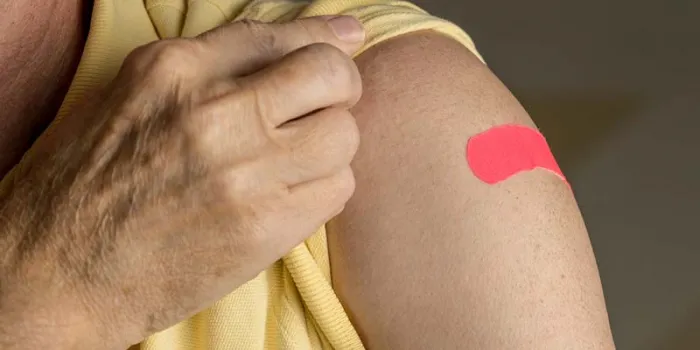Flu season is just around the corner, and you know that means it’s almost time to get your annual flu vaccine. But you might need other immunizations, too. Ask your doctor if you should have any of these adult vaccines:
Tdap (Tetanus, Diphtheria and Pertussis)
Adults should receive the Tdap vaccine if they did not receive it as a child, and every adult should receive a Td (tetanus and diphtheria) booster shot every 10 years. The Centers for Disease Control and Prevention (CDC) also recommends that pregnant women get the Tdap vaccine to protect them and their babies from pertussis, also known as whooping cough.
Varicella
If you never had chickenpox or you didn’t get the vaccine as a child, you can still catch chickenpox as an adult, so it’s a good idea to get immunized. If you’re not sure if you had chickenpox, your doctor can do a blood test to check.
Shingles
If you did have chickenpox as a child, the virus can lie dormant in your body and then flare up again as shingles—a severe rash with blisters and nerve pain. The CDC says almost 1 in 3 Americans will develop shingles. The vaccine is recommended for adults ages 50 and older. However, it is not recommended for pregnant women, people with weakened immune systems and those with HIV or AIDS, leukemia or lymphoma.
Pneumococcal
Pneumonia can be debilitating, especially in older people. The CDC recommends the pneumococcal vaccine for adults ages 65 and older and for adults younger than 65 who have health conditions such as liver disease, HIV, asthma or diabetes. There are two types of pneumonia vaccine, so ask your physician which one is appropriate for you.
HPV (Human Papillomavirus)
HPV is usually transmitted through sexual contact, and it causes warts on the genitals, mouth and rectum. HPV often goes away on its own, but it can sometimes develop into cancer. HPV is a major cause of cervical cancer in women and of anal cancer and genital warts in women and men. HPV vaccination is recommended through age 26 for women and age 21 for men if they were not vaccinated when they were younger.
Hepatitis A and B
Hepatitis A and B cause inflammation of the liver and can lead to serious complications for people with bleeding disorders. Although the National Hemophilia Foundation’s Medical and Scientific Advisory Council strongly urges vaccinations for hepatitis A and B, some people with hemophilia still may not have been immunized. Consult your hemophilia treatment center team or primary care physician about getting the hepatitis A and B vaccines, which are given in a series.
To reduce the risk of a muscle bleed, many vaccinations can be given subcutaneously, or under the skin, instead of intramuscularly, or into the muscle. However, some healthcare providers may prefer to give intramuscular injections using a small-gauge needle in a larger muscle, like the thigh. Your hemophilia treatment center can instruct you on whether factor infusion is needed before an intramuscular injection, and treating the area with ice afterwards can help reduce bruising and ease discomfort.

